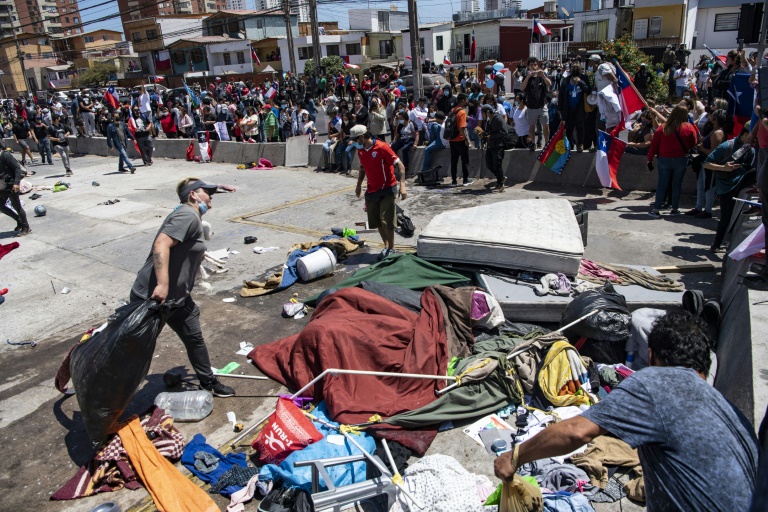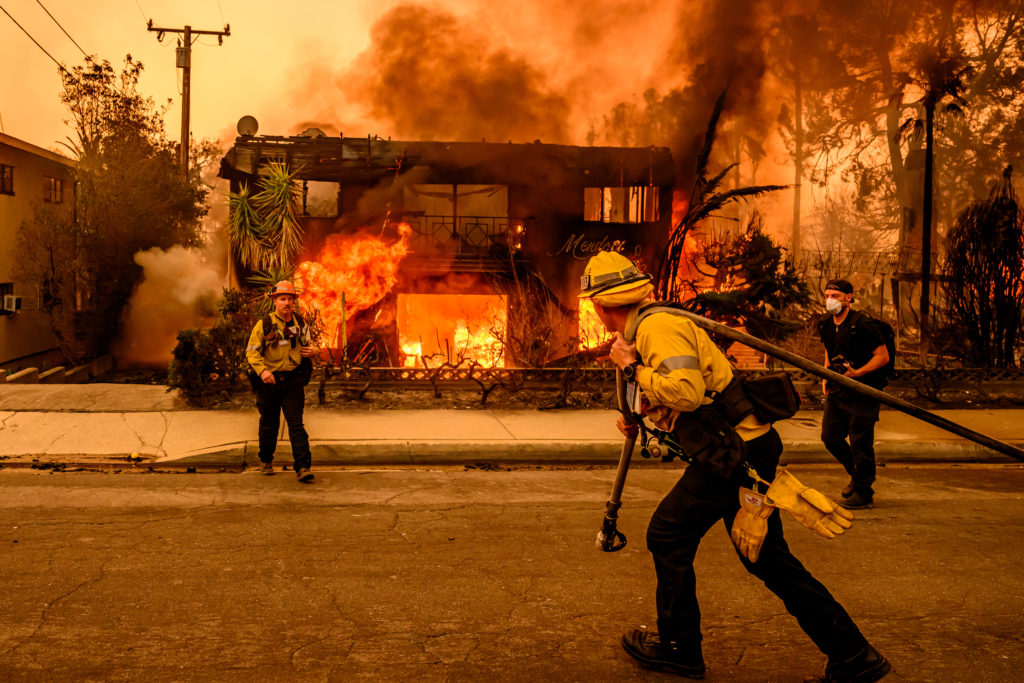The United Nations expressed concern Monday at “violence and xenophobia” meted out to undocumented migrants in Chile over the weekend by locals fed up with their presence in the country.
Some 3,000 protesters took to the streets of the northern port city of Iquique on Saturday, some burning the belongings of rough-sleeping migrants who had been occupying a public square for months.
In a tweet, the UN mission in Chile urged the “authorities and the population to act within the framework of respect for human rights and international humanitarian rights.”
The world body expressed its willingness to provide technical assistance and to “collaborate in the efforts of national and local authorities.”
The Iquique protesters waved Chilean flags and chanted slogans against the migrants, mainly Venezuelans fleeing dire economic conditions in their country by crossing the Andes mountains and Atacama desert.
Eduardo Stein, the UN Refugee Agency and UN Migration Agency’s representative for Venezuelan migrants, expressed his “sadness and dismay” at what he described as acts of “hate, intolerance and xenophobia.”
Chile’s Interior Minister Rodrigo Delgado also denounced the protest but insisted “we will continue with evictions of all public spaces” as well as “the plan of expulsion” of undocumented migrants.
The demonstration took place a day after police evacuated a migrant camp that had existed for a year on the town square. Most of the migrants, poor and undocumented, are surviving on odd jobs and sleeping in tents.
Chile is Latin America’s wealthiest country per capita.
Venezuela, meanwhile, is in an unprecedented economic and political crisis that has led millions of people to leave their country, rich in oil resources but mismanaged and rife with dysfunction.
Venezuela’s national currency, the bolivar, has lost 73 percent of its value to the dollar so far this year. Inflation is about 3,000 percent.
According to the Jesuit Migrant Service, 23,673 undocumented people entered Chile, a country of 19 million, from January to July — almost 7,000 more than in the whole of 2020.










